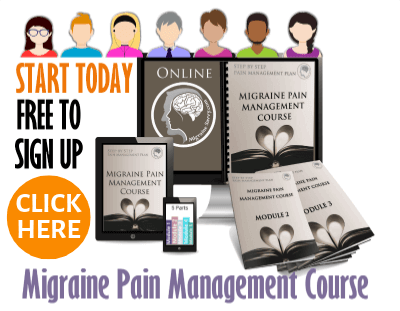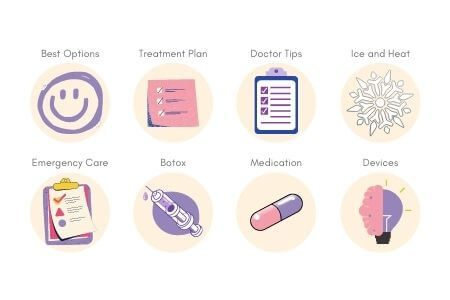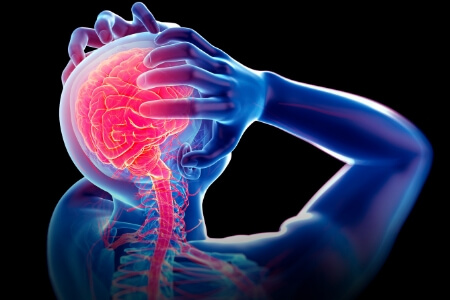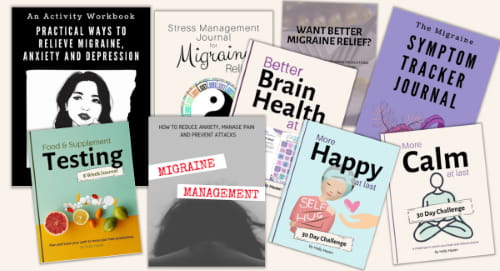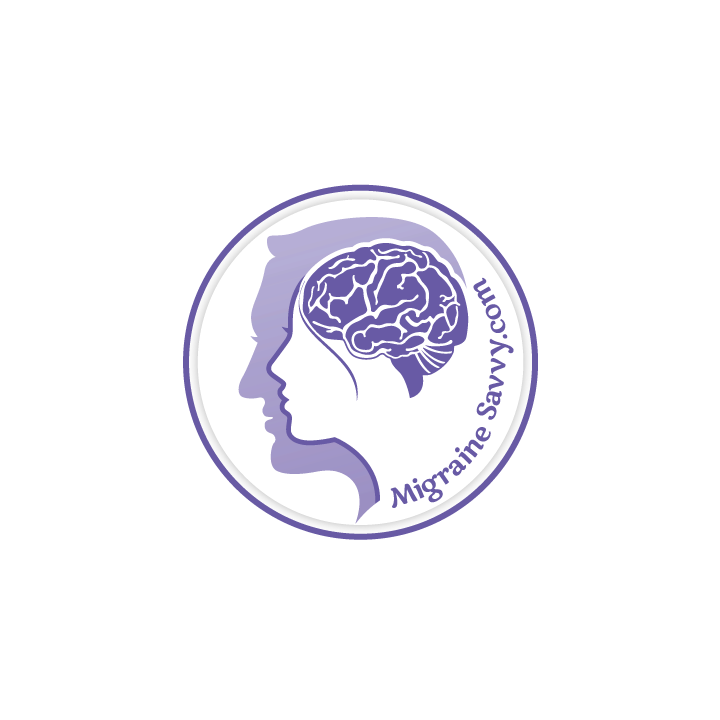- Home
- Migraine Treatments
- Migraine Doctor
Magnesium Deficient = More Migraine Attacks
Science confirms this hidden trigger.
Get all 7 forms your body actually absorbs in one bottle.
🎁Save 10% with my code!
Magnesium Deficient = More Migraine Attacks
Science confirms this hidden trigger. Get all 7 forms your body actually absorbs in one bottle +
🎁Save 10% with my code!
Practical Migraine Doctor Tips To Save You Time, Money and Energy
Your migraine doctor will (should) ask a lot of questions. Are you ready for them?
It can take a lot to remember what happened months ago, so it's really best to keep a diary or notes of things that have been happening around your attacks... more on that a bit later. Practical migraine doctor tip #1 is to be prepared.
Here is what you can expect to be asked:
How long have you suffered the headaches and what is the frequency of your attacks?
How many started in your sleep?
What parts of your head hurts during an attack?
Do you get early warning signals with your migraine headache symptoms to tell you that a headache is coming?
How disabled are you by the experience?
Are you aware of any triggers that bring on an episode?
And are you aware of any alleviating factors (bed rest, avoiding glare, medications, and massage) that help reduce the pain?
I want to stress how important it is to become your own best adviser as you navigate the road to pain relief and reclaim your life.
Don’t settle or give up too early like I did and end up suffering needlessly for years.
Seek treatment from a specialized migraine doctor and get back to your life. You are worth it! You will find some relief... persevere.
And be prepared ahead of time for your 15, 20, or 30 minute appointments. It's best to be organized for each appointment so you can make the best use of your time and money.
Being "forewarned is being forearmed; to be prepared is half the victory." ~ Miguel de Cervantes
Let's keep this very long journey, as efficient as possible.
My #1 Choice in Magnesium Supplements
Ten Tips Before Seeing Your Migraine Doctor
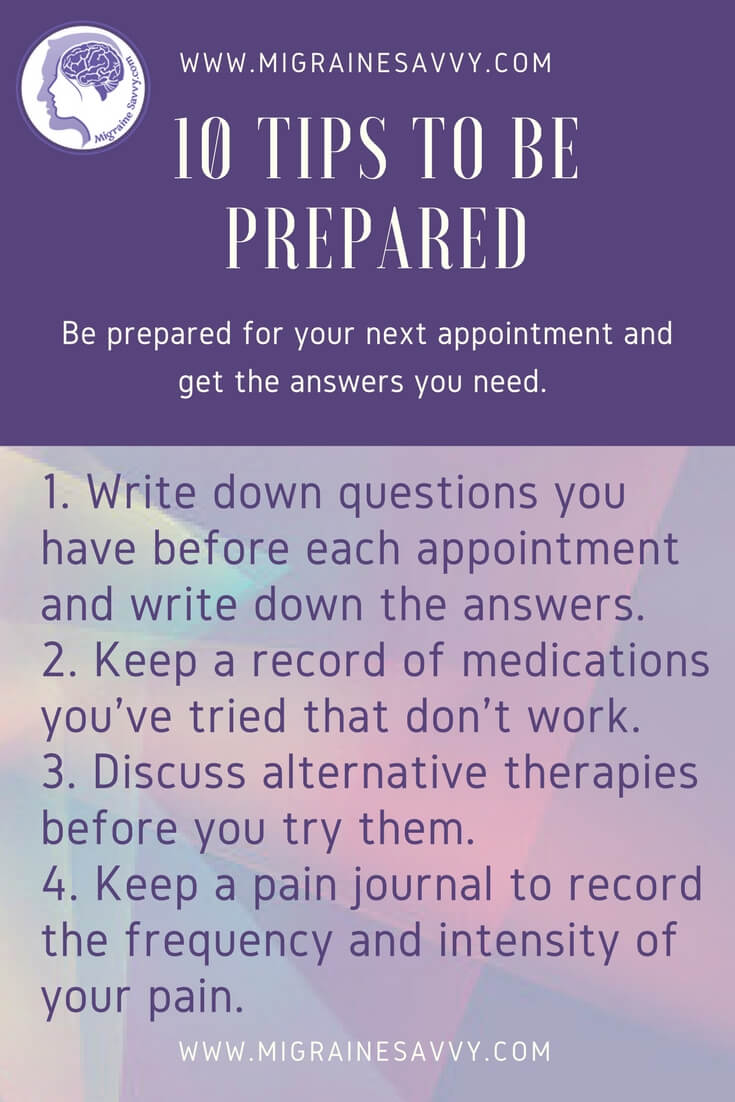 Get the most for your time and money.
Get the most for your time and money.When emotion steps in, intellect steps out. So if you find yourself getting emotional in your migraine doctor appointments, start with number one...
1. Write down questions you have before each appointment and leave space to write down the answers.
Before you see your doctor, you might like to have some symptoms and dates of your most recent headaches recorded. Answer some of the questions listed above so you're prepared.
Write down your symptoms and the extent of your pain and how it affects your quality of life, in case you feel overwhelmed you can still get your questions out to be answered.
New information can become overwhelming, so make sure you understand. Ask more questions until you understand fully.
2. Keep a record of medications you’ve tried that don’t work.
There are quite a few pain killers, abortive drugs and prophylactics for your doctor to trial with you.
Keep a list in case it takes some time, or you change doctors.
Try using these headings : Name, Dose Used, Duration of Trial (date started and date stopped) and Outcome. Side effects are important too.
Please click on this link to access the download for the medication tracker form you can use to keep track of your medications.
3. Discuss alternative therapies before you try them.
There are an overwhelming number of non-drug approaches and alternative therapies available that claim to effectively control migraines. (i.e. acupuncture, acupressure, chiropractic manipulation, physiotherapy, yoga, massage, meditation, essential oils, biofeedback, neurofeedback, salt, Vitamin C therapy, energetic healing, cranial sacral therapy... etc.)
Discuss which one might work best for you and your unique health history.
The best results are usually when these therapies are used in some combination with traditional medications.
Ask your doctor about recommending ways to relax and cope with pain. Let him/her know if your pain feels worse when you are exercising, stressed, depressed or anxious. And what it is relieved by... meditation, sleep...
These work well for me, give one a try:
4. Make another list of vitamins and supplements you take as well.
Along with the list of over-the-counter medications you take or have tried that work or don’t work - make another list that includes all the vitamins and supplements you take as well. Make sure you also add the dose and how often you
take them.
For example - some herbs like St. John’s Wort (Hypericum perforatum) can adversely interact with some migraine medications and should not be used in conjunction with antidepressant medication.
Click here for the top 6 supplements for migraines.
5. Keep a pain journal to record the frequency and intensity of your pain.
Describe the quality of your pain, is it: sharp, crushing, throbbing like a heartbeat, or pressure like burning, stabbing, shooting or tender.
List specific symptoms you are concerned about.
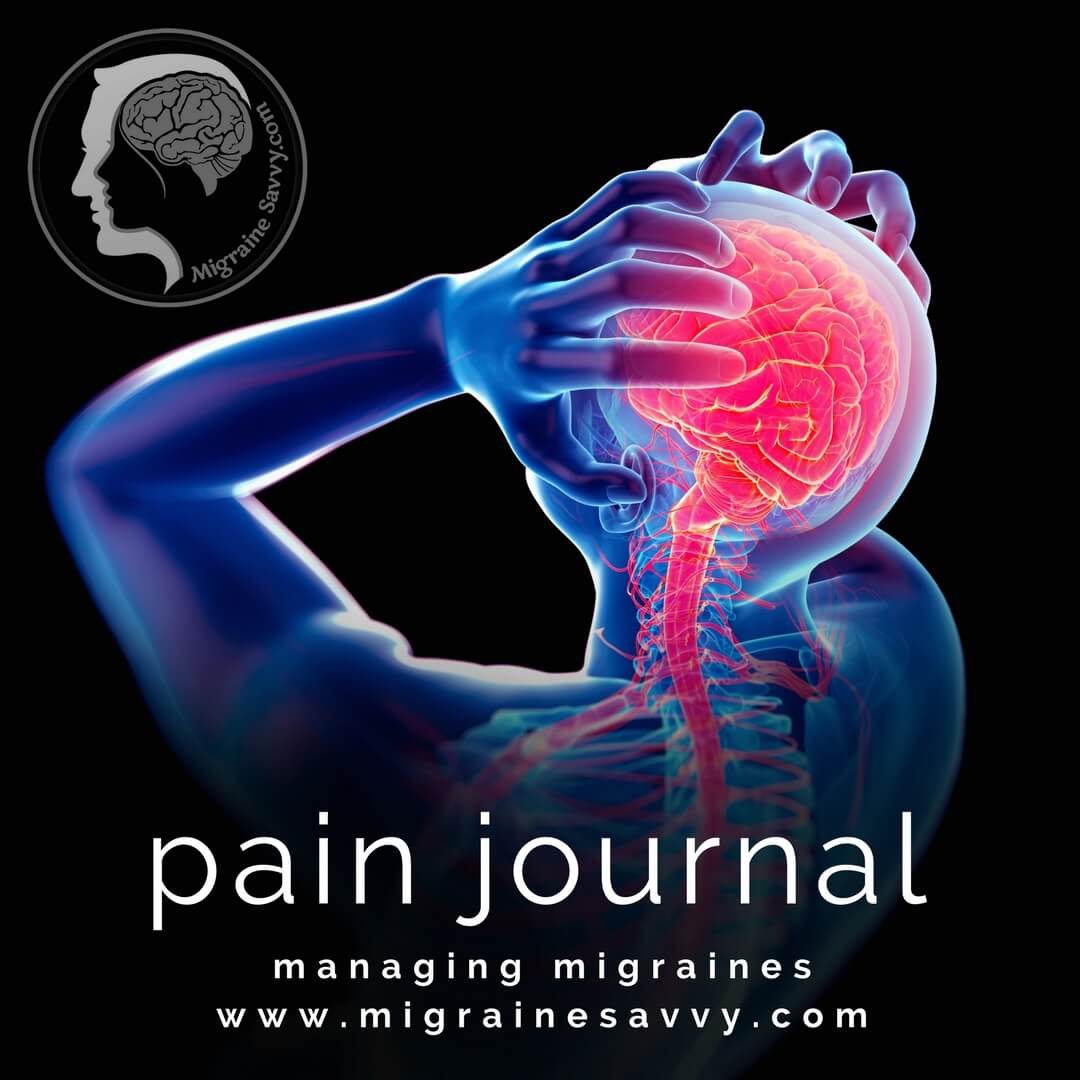 Keep a pain journal for your migraine doctor.
Keep a pain journal for your migraine doctor.These symptoms might be:
- Visual shimmering
- Numbness / tingling
- Glare / light sensitivity
- Blocked nostril
- Nausea
- Vomiting
- Noise sensitivity
- Tearing from your eye/s
And make sure to record what makes your pain better or worse.
6. List triggers if you know them already.
Your migraine headache triggers won’t change so don’t be tricked to think they will lose their effect one day. They will not.
If perfume triggers an attack... it's likely it will always trigger an attack. Smoke, weather, hormones... same thing.
There is a theory around accumulated triggers... but I've not found that this is always the case either.
Discuss trigger management options. If high histamine gives you a headache after eating, your doctor might have just the solution (like Histamine Block).
7. Ask the right questions.
You should be able to cover 2 or 3 questions in a 15 minute session. If you have more questions, ask for a longer appointment.
Make a list, and pick your top 3 concerns.
Be sure to ask your doctor if they have experience with migraines in other patients.
Ask about their success rates and always ask about side effects of the medications they prescribe for you.
It may feel like you are learning a new language, but learn to ask them using their language.
Write down what they call your symptoms or reactions. For example, in my eCourse I cover what Neurologists consider features of migraine.
By asking the right questions you will be able to educate yourself. Which brings me to the next point.
8. Educate and support yourself.
My #1 Choice in Magnesium Supplementation
You can educate and support yourself by gathering more information on your exact migraine diagnosis.
You can get a second opinion from another migraine doctor and ask for a referral to see a specialist. Find a neurologist who treats migraines.
Not all neurologists are migraine doctors.
You can also ask your migraine doctor to help you find information online and look for local support groups or a counselor or psychologist who specializes in chronic pain management.
This company (I love) has online counseling for migraine support available around the clock 24/7.
There are 3 things I can recommend for you to educate yourself right now:
- Check out the Migraine World Summit for patients by patients. You will get top notch doctors answering all sorts of questions. You can buy it now or wait until it comes around again for free.
- Read my ebook Migraine Management. It will help you manage stress and anxiety with a simple process I use with my clients. You will get a link to printable worksheets and templates so you can work through the process in real time.
- Enroll for free in my Migraine Pain Management Course. As a qualified counsellor, there is a whole section for emotional support. Long term support is essential if your migraines are wreaking havoc in your life.
And you can always come back to Migraine Savvy and check my Blog for what's new. Better yet subscribe to the RSS feed or stay in touch by joining the mailing list.
9. Get extra information about your prescribed medications from the pharmacist too.
This slots into gathering more information too. Your migraine doctor is your first port of call, but chemists know more than doctors when it comes to interactions between medications. That’s what they trained for… chemistry!
You can use Dr. Google but make sure you are reading reputable and reliable websites like mine ;-). I stick to the Mayo Clinic and WebMD mostly for medication information.
I prefer getting the MIMS patient information from the prescribing pharmacist.
My #1 Choice in Magnesium Supplements
10. Double check the recommended dosage.
 Watch what you take to find pain relief.
Watch what you take to find pain relief.Make sure your doctor knows exactly which other medications and supplements you are taking before trying a new medication. You’ve already provided the lists above, but it’s good to make sure they are aware at the time and not relying on their memory from a past appointment.
They are just human... after all!
I mention this because different sized bodies might need a different dose. I am twice the size and weight of my little petite Japanese friend for one example. So if you are a small build, ask if you should try a half dose first.
NEVER EVER take more medication
than your migraine doctor's recommendation, never ever!
Even if you vomit it up – don’t take more. You risk overdosing.
Go for the ice packs and alternatives listed in tip #3 above.
You might already know this one, but it's just so important. I never knew this until I read that it was a leading cause of death among migraineurs.
You might like to read my article on Medications for Migraines: What You Need to Know, for more details.
Please be careful. Overdose is the leading cause of death in migraine sufferers.
What You Can Do Right Now
Here are a few more things you can do right now to prepare for your migraine doctor visit... and prevent your next attack:
- Read How to Treat a Migraine with Ice and Heat
- Learn how to Perfect Your Headache Doctor Partnership
- Enroll in my Migraine Pain Management Course for free
And if you'd like some extra help with paperwork to prepare, you can join the mailing list to get access to Track and Tame Your Migraines. It has PDFs to print out of a: migraine calendar, medication notes and a tracker, and some other things you can use every day.
Until next time, be well, and may your toughest days be met with comfort and care. Keep going - you are stronger than you know.
~ Holly, Migraine Savvy
WANT MORE TIPS? Subscribe to my newsletter and follow along on Facebook and Pinterest for all of the latest updates.
MIGRAINE TREATMENTS Related Articles
How to be more MIGRAINE SAVVY right now...



